How we arrived here... History and economics..Part 7...The Rothschilds destruction of Mother Russia...
it's impossible to look at how we arrived here today without truly understanding the events of the late 19th century and how it shaped -everything.
It's impossible to look at how the late 19th century shaped everything today - without an understanding of what events led there...
I've been trying to keep things relatively simple and straightforward in this series - without getting too bogged down with too much detail.
This part of history needs to be understood, so as to be able to see the ramifications of those past events - of which are still very present, in today's world.
“When a government is dependent upon bankers for money, they and not the leaders of the government control the situation, since the hand that gives is above the hand that takes.
Money has no motherland; financiers are without patriotism and without decency; their sole object is gain.”
Napoleon Bonaparte.
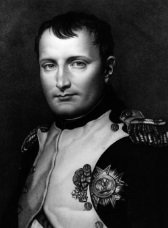
Some essential background, leading up to 'the Russian story...'
Napoleon Bonaparte soon realized that international money stood behind every foreign army , irrespective of the state's title.
He had his own ideas on how he wished the French economy to be run.
The bedrock of the economy was to be agriculture.
Next in importance was industry. which “ministers to the comfort Next came foreign trade. (the surplus of agriculture and industry).
His perspective was stated as : “foreign trade ought to be the servant of agriculture and home industry. These last ought never to be subordinated to foreign trade.”
Napoleons objective was to ensure financial independence, and self sufficiency in the production of goods for domestic consumption.
As Napoleon's Empire grew, the Rothschilds banking family were virtually excluded from operating in European continental markets.
The French Franc Franc was the most stable currency in Europe.
Relations between the English Government (aka Rothschild banking) broke down when Napoleon refused to sign a trade treaty with them.
This treaty which would promote “free trade” and was a modern day version of globalization, (nafta and Tipp are the same versions of this strategy ) .
England, under the direction of her international bankers, proceeded to finance Austria, Prussia, Russia, Spain and Sweden.
They declared war on France.
Napoleon was then forced to engage in a series of wars, for a number of years in order to protect France.
He knew that England could not finance her imports (and fund
her allies) at the same time. He made 'The continental blockade'.
The Treaty of Tilsit was signed on 7 July 1807 on a raft in the middle of the Neman river in east Prussia.
Napoleon and Tsar Alexander I, agreed to an alliance.
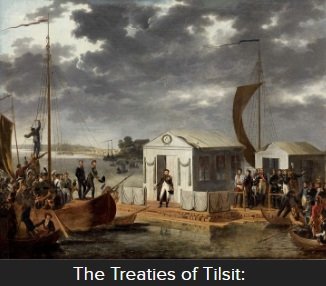
Alexander agreed to join Napoleon's Continental Blockade of England and to support each other in the event of any international disputes with other nations (the British Empire and the Rothchilds, essentially).
At that time, France and Russia were the only two countries in Europe which were not on the usury system and were not indebted to the Rothschilds.
A few years later, after the signing of The Continental Blockade, Russia started to violate the treaty. (Russia was a producer of mainly raw materials, and hadvery little industrial capacity - and was dependent on England for the importation of industrial products).
Because of internal political pressures within Russia, Alexander was only prepared to continue with the blockade, if France could supply him with the necessary industrial goods which he'd previously imported from England.
France could not meet these requirements.
England had command of the seas and there was no road or rail infrastructure in Europe at the time to provide the supply routes.
Napoleon invaded Russia in an attempt to maintain the blockade.
It was a military disaster and was 'the beginning of the end' of the Napoleonic era.
In 1814 he abdicated, and was exiled. (He attempted a failed 'comeback' culminating at the battle of Waterloo 'the 100 days war').
After this defeat, Napoleon was exiled to the British island of St Helena in the South Atlantic.
An examination of Napoleon's corpse indicated that he'd almost certainly died of cyanide poisoning following chronic arsenic intoxication. This was initially attributed to the green pigments used in the wall paints of the era - of which arsenic was an ingredient - but also could have been the work of a Rothschild assassin. (a well used strategy of the banking family to erase any 'threats' to their hegemony).
Napoleon:
"....If I had not been overthrown I would have made a complete change in the appearance of commerce as well as of industry. The efforts of the French people were extraordinary.
Prosperity and progress were growing immeasurably. Enlightenment
was making giant strides. New ideas were everywhere heard and
published, for I took pains to introduce science among the people…."
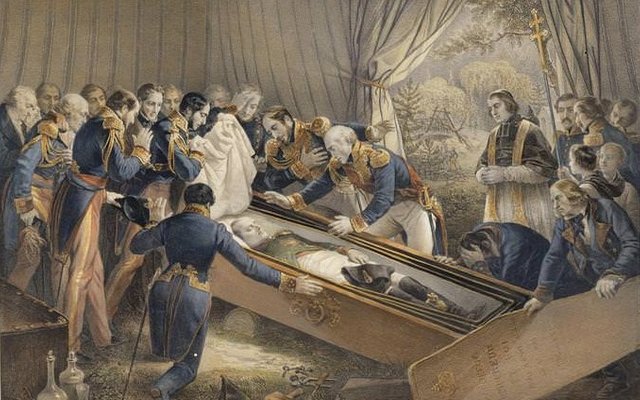
Napoleons rule over France came to an end in 1815.
In 1817, Jacob Mayer Rothschild, in Paris, formally created the bank, 'de Rothschild Frères', whose partners were brothers Amschel of Germany, James of France, Carl of Naples, Nathan of England and Salomon of Austria.
Behind the scenes, Nathan Mayer Rothschild proposed the formation of 'a new world order' which was, unsurprisingly, concentrated around central banking. (those who do not know history are doomed to repeat it)
All the major powers - with the exception of Russia - were
indebted to the Rothschild banks.
Tsar Alexander I , refused to comply with Rothschild’s.
He rejected Rothschild’s offer to set up a central bank in Russia.
This incurred the vindictive wrath of the Rothschilds.
According to one Major-General Count Cherep Spiridovich, the banking family were responsible for the assassinations of the last five Tsars.
On 12 June 1860 The State Bank of the Russian Empire was created.
In 1894 year it was transformed into being 'the banker of the banks' and operated as an instrument of government policy.
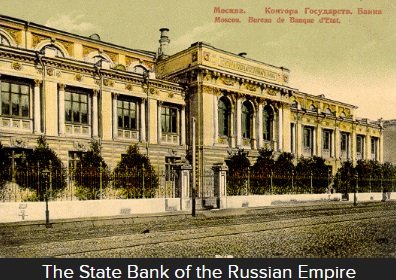
It minted and printed the nation’s currency, regulated the money supply and - through commercial banks - provided industry and commerce with low interest rate loans.
It had vast gold reserves...the largest in the world at the time and they exceeded the bank note issue by more than 100%.
By 1914 it was one of the most influential lending institutions in Europe.
Russia also had the smallest national debt - in the world!
In 1861 Tsar Alexander II abolished serfdom, which still affected 30% of the population. By 1914 very little land remained in the possession of the old Russian estate owners (the nobility). 80% of the farming land was now in the hands of the peasants, which had been 'sold' to them, for a very small sum.
After the passing of the Stolypin Act (1906) peasants could now obtain individual title deeds of the land - with hereditary rights.
By 1913 two million families had availed themselves of this new opportunity.
The Peasants’ State Bank , granted loans at a very low rate of interest (a handling charge in essence).
Agricultural production had soared and by 1913 Russia had become 'the world’s bread basket'.
Some examples (1000's/tons)
Barley:
World production 1,771
Russians Production 750 = 42 %
Oats:
World production 3,324
Russians Production 1087.00 = 30%
Wheat:
World production 4,971
Russians Production 1,554 = 31%
Russian agricultural production of cereals exceeded the production of Argentina, Canada and the United States , combined - by 25%.
Russian provided 50% of all the worlds egg exports!
During the period 1890 - 1913 industrial production quadrupled , and Russian industries were able to satisfy 80% of internal demand for manufactured goods – a perfectexample of autarky.
Autarky is the characteristic of self-sufficiency, usually applied to societies, communities, states and their economic systems.
wiki
The Russian State bank created the people’s money out of nothing
and at almost zero interest.
It's no surprise that in 1912 Russia had the lowest levels of taxation in the world.
Throughout this period of Russian State Banking there was no inflation and virtually no unemployment.
If you compare the tax burdens of the time, in the different countries, you can see the parasitical effects of central banking.
Great Britain - 26.75%
Germany -12.97 %
Russia - 2.66%
....And the gold reserves in each country...(in millions of rubles)
The State Bank of the Russian Empire - 1,550
Reichsbank (Central bank) - 411
Bank of England (Central bank) - 331
A study by British lawyers concluded that the Russian Code of Laws and judiciary were “the most advanced and impartial in the world.”
Elementary education was obligatory, and between 1906 and 1914 10,000 schools were opened.
Russia was the first industrialized country to pass laws limiting the hours of work in factories and mines.
Strikes(forbidden in the USSR) were permitted in Tsarist times.
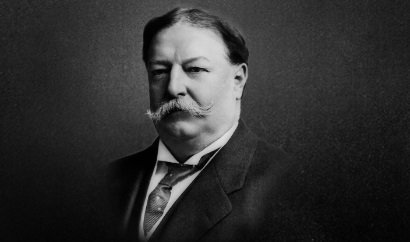
Taft (27th president of the United States) said:
“the Emperor of Russia has passed workers’legislation which was nearer to perfection than that of any democratic country.”
The people of all races in the Russian Empire had an equality of status and opportunity which was unparalleled in the modern world.
On 17 November 1917 the Rothschilds - fearful of a replication that this shining example of freedom and prosperity without central banking, would destroy their own banking empire, instigated and financed a 'Bolshevik revolution' in Russia.
This revolution ruined a prosperous country and resulted in the deaths (by murder and starvation), of over 60 million people!
In 'Wall Street and the Bolshevik Revolution' author, Professor Antony Sutton details the “enthusiastic alliance of Wall Street and Marxist Socialism”.
" Without the financial support of J P Morgan’s Guaranty Trust Company, John D Rockefeller’s Chase National Bank, Jacob’s Schiff ’s Kuhn Loeb and Company and Olf Aschberg of the Swedish Nya Banken, the Bolshevik revolution could not have succeeded."
'The Bolshevik Revolution' was merely a disguise to help advance the aims of the Rothschild central banking, agenda.
The Bolshevik Revolution was little more than a giant asset stripping and wealth transfer, exercise, instigated by the Rothschilds.
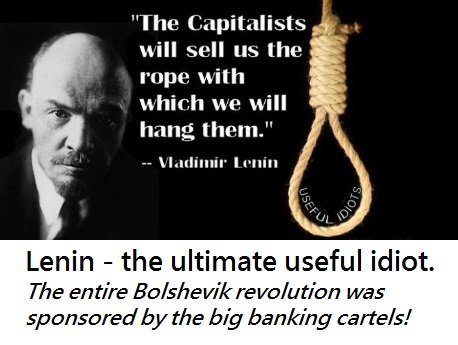
This series is so interesting! I had no idea of any of this. I do know this family is in charge of the news, and in deep with the covid con, the US election, the climate change con, education. Boy they got us good! With more folks like you exposing them, we can turn that around. Thank you so much!
I'm glad you find value in it!